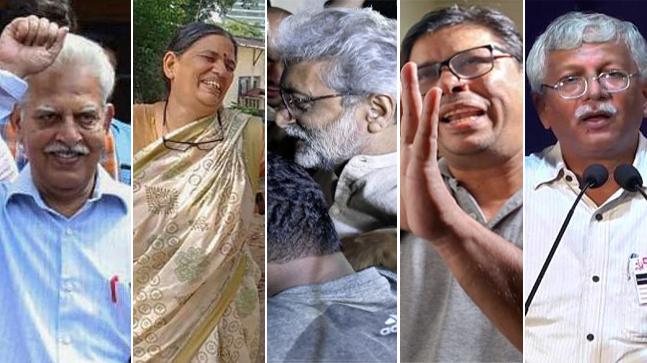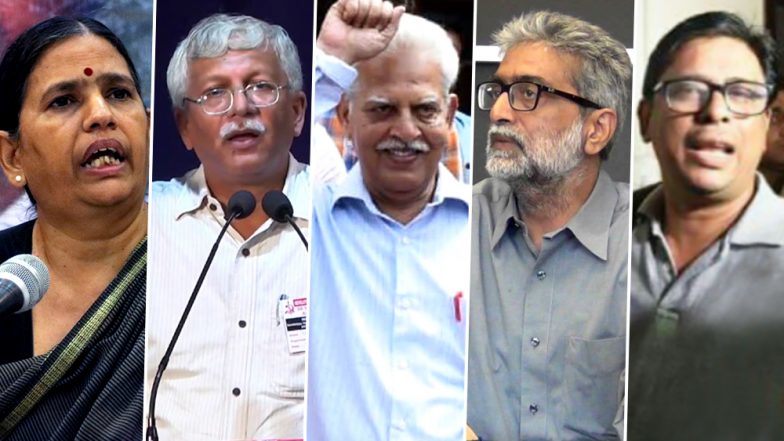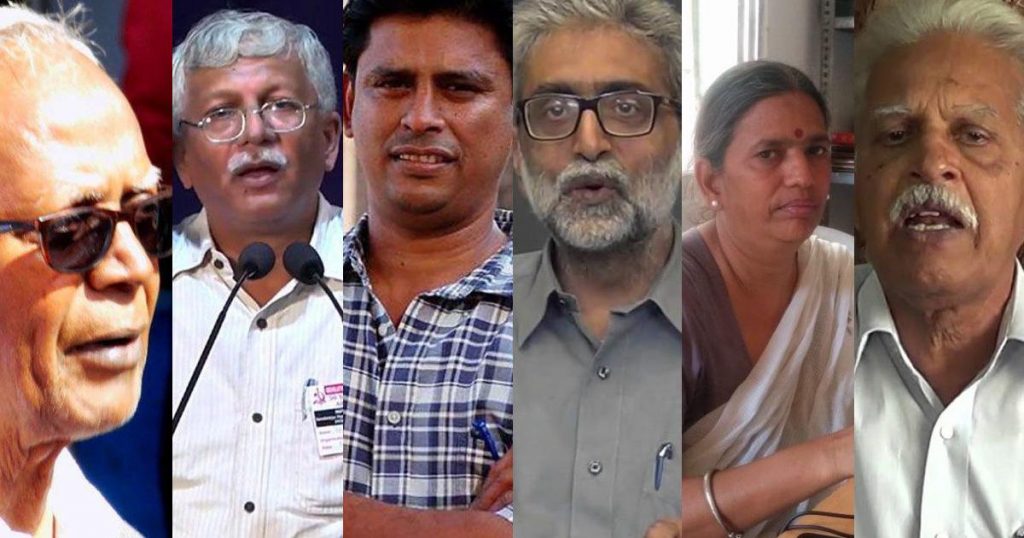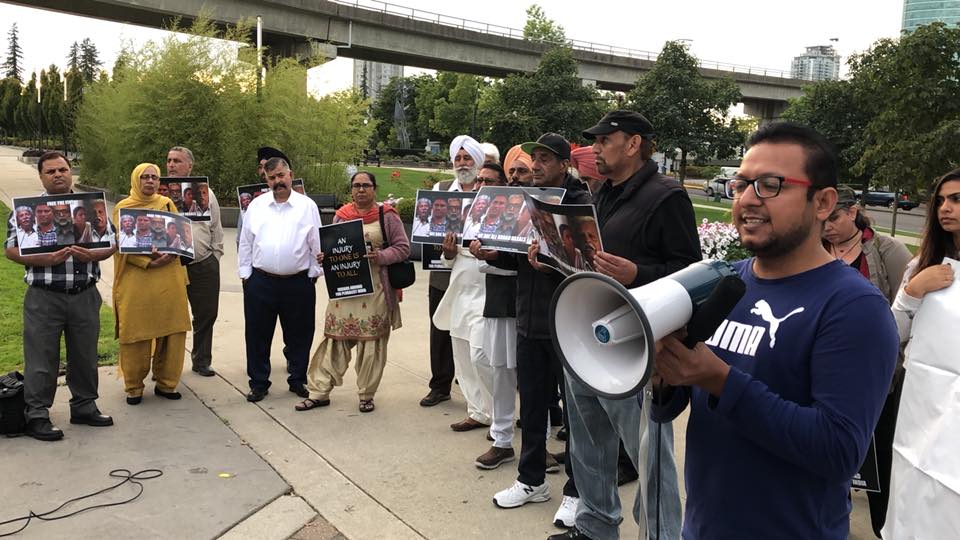
The term `house arrest’ does not find any mention in the CrPC (Criminal Procedure Code) or the IPC (Indian Penal Code). But certain judges have invented this term to justify their decree, presumably by falling back upon an Article in our Constitution. Article 142 empowers the Supreme Court to “pass such decree or make such order as is necessary for doing complete justice in any cause or matter pending before it, and any decree so passed or order so made shall be enforceable throughout the territory of India…until provision in that behalf is so made ….in such manner as the President may by order prescribe.”
As far as we know, neither Parliament nor the President has as yet prescribed any amendments to CrPC or IPC, to make provision for the sentence of house arrest’ under their clauses. Under these circumstances, the decision of a Supreme Court bench in August, 2018 to sentence five eminent intellectual social activists - a poet, a human rights lawyer, a journalist and two others to house arrest,’ should be deemed as rather hasty and unbecoming of the honourable judges. On September 28, the Supreme Court bench further extended their house arrest’ for another four weeks. This time however, the honourable judges were generous enough to allow the incarcerated to approach a trial court for bail or any other relief. Following this , Gautam Navlakha (who had been confined to his home in Delhi for more than a month) appealed to the Delhi High Court, which freed him from house arrest’ on October 1. While releasing him, Justices Muralidhar and Vinod Goel of the Delhi High Court recalled the origins of the entire episode – a fallacious order by a local court in Maharashtra, which led to the unnecessary harassment of Gautam Navlakha and four other social activists all these months. Trashing the local court for ordering the Maharashtra police to transfer Navlakha to Pune in connection with the Koregaon-Bhima violence case, the two judges said: “ It is obvious that there was non-compliance of mandatory provisions of the Constitution and Code of Criminal Procedure..” The judges also pointed out that Navlakha’s detention had exceeded 24 hours, and was thus “untenable.” What surprises me is why the Supreme Court bench, to start with, instead of questioning the Maharashtra court’s order – which has now been found fallacious by the Delhi High Court – chose to sentence the five activists to `house arrest.’
Peeved by the Delhi High Court’s order to release Gautam Navlakha, the Maharashtra government is now planning to petition the Supreme Court to challenge that order, according to newspaper reports. After having made fools of themselves – by failing to provide evidence that passes judicial scrutiny – both the Pune police and the local court there, instead of learning lessons from their past acts, seem to be determined to follow in the same foolhardy direction. Let us see now how the apex court treats their petition.
Life under `house arrest.’
Apart from the questionable nature of the term under which they were sentenced, we expected that the apex court judges should have at least clarified the rights of those incarcerated under `house arrest’, and the powers of the police personnel deployed to keep them under surveillance. What are the limits beyond which the latter cannot encroach on private space ? The bench of judges however remained silent on this issue, and failed to lay down the lines of demarcation between the house arrestee’s right to privacy and the police guards’ powers to violate that right.
Some may argue that the bench had been charitable to the accused by allowing them to be in their homes – although under police surveillance – to enjoy their domestic facilities, instead of suffering incarceration in the alien environs of a jail. Gautam Navlakha, who has always put up a brave face against adversities, says: “The period of house arrest, despite the restrictions imposed, was put to good use…” He must have put it to good use by reading and writing, and contemplating on the past, the present and future of the cause of socialism, as is his wont.
But there is also another side to the narrative of house arrest.’ Let us listen to the plight of one such prisoner. Since the eminent lawyer Sudha Bharadwaj (under house arrest’) has not been allowed till now to speak out in public, her daughter Maaysha through a website channel has provided us with a glimpse into her domestic life under police surveillance. (Re: The Wire; 29 September, 2018) . She says: “Yes, it is little better than jail. But not that good. You cannot use a phone. You cannot go to the balcony. You have to keep your bedroom door open when you sleep…” She then adds the poignant note: “It is very difficult to manage 3-4 cops staying your place, using your toilet, TV, AC, etc. Sometimes you wonder whether this is your home or not…”
Harking back to stories of Nazi occupation army
Reading Maaysha’s outpouring, I am reminded of another episode in modern history. During World War II, when the German Nazi army occupied France, it billeted its personnel in the houses of the French to live there temporarily. Being an occupation force, these soldiers demanded and encroached upon all the facilities that were available in these houses – toilets, kitchens, sitting rooms, etc. The mood of repulsion and resistance of these French householders against the aggressive intrusion into their domestic space by the German soldiers and officers, was captured by a contemporary French writer in a book which remains a classic in world literature – a vivid illustration of how an act of silence as a form of non-cooperation with the ruling authorities can also be a form of protest.
Jean Bruller wrote a book entitled ‘Le Silence de la mer’ (The Silence of the Sea) in 1941, which he published secretly in German occupied Paris in 1942 under the pseudonym `Vercors.’ It is a story of an old man who lives with his niece in a small town in France, then occupied by the Germans. A German officer is billeted in their house. He comes from an aristocratic background, well-versed in French culture, and wants to be friendly with this French household upon whom he has been imposed, by offering an apology (in fluent French) : “I am extremely sorry…I would have avoided this if I could…” To his disappointment, he is greeted by a chilling silence from the French family. All through his stay in that household, despite his attempts to reach out to them, he could feel “the silence fill the room – a silence unbroken…closer and closer like the morning mist..” The French family created its own form of domestic resistance (a silent and stoic counterpart of the armed resistance by the partisans against the Nazi troops in the streets of Paris).
I feel sad today that I have to recall this episode of billeting of German soldiers in French homes during World War II, as a parallel to the plight of my citizens under `house arrest’ in post-Independence India, with their homes occupied by Indian police personnel.
Sumanta Banerjee is a political and civil rights activist and social scientist














































